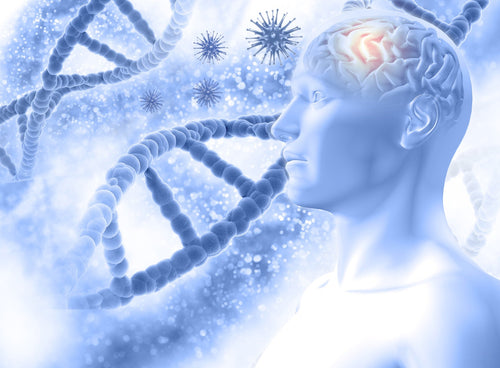
The Vital Link: Nutrition and Mental Health - A Dietitian's Guide
The Vital Link: Nutrition and Mental Health - A Dietitian's Guide
The undeniable link between nutrition and mental well-being is clearer than ever. As a dietitian, understanding this connection is not just beneficial—it's crucial for providing holistic patient care.
The Gut-Brain Axis: A Foundation for Understanding
The gut-brain axis is a bidirectional communication system between the gastrointestinal tract and the central nervous system. Emerging research continues to highlight its significance in mental health. The gut microbiome, a complex ecosystem of bacteria, fungi, and other microorganisms residing in the gut, plays a critical role in synthesizing neurotransmitters like serotonin, dopamine, and GABA, all essential for mood regulation.
Nutritional Strategies for Mental Well-being
- Omega-3 Fatty Acids: These essential fats, found in fatty fish, flaxseeds, and chia seeds, are crucial for brain health. They combat inflammation and support the production of neurotransmitters, demonstrating significant impact on reducing symptoms of depression and anxiety.
- B Vitamins: A deficiency in B vitamins, particularly B12 and folate, can significantly impact mental function. These vitamins are involved in the synthesis of neurotransmitters and maintaining healthy nerve function. Encourage patients to consume leafy greens, legumes, and animal products rich in B vitamins.
- Magnesium: This vital mineral plays a crucial role in reducing stress and anxiety. Good dietary sources include dark chocolate, almonds, spinach, and avocados.
- Prebiotics and Probiotics: These promote a healthy gut microbiome. Prebiotics are non-digestible food components that feed beneficial gut bacteria (probiotics). Encourage your patients to consume foods rich in prebiotics, such as onions, garlic, and bananas, or consider recommending probiotic supplements.
- Zinc: Important for brain development and cognitive function, adequate zinc intake is crucial for mental well-being. Good sources include oysters, beef, and pumpkin seeds.
Addressing Nutritional Deficiencies: A Dietitian's Role
Many mental health conditions are associated with specific nutritional deficiencies. Your role as a dietitian is to identify these deficiencies through a thorough assessment, including dietary history, blood tests (where appropriate), and symptom evaluation. Early detection and intervention through nutritional counseling can make a significant difference in patient outcomes.
Beyond Nutrients: Lifestyle Considerations
Nutrition is just one piece of the puzzle. Encourage your patients to adopt a holistic approach to mental health, encompassing:
- Regular Exercise: Physical activity boosts mood, reduces stress, and improves sleep.
- Stress Management Techniques: Mindfulness, yoga, and meditation can significantly benefit mental health.
- Adequate Sleep: Prioritize 7-9 hours of quality sleep nightly. Sleep deprivation negatively impacts mood and cognitive function.
- Hydration: Dehydration can exacerbate symptoms of anxiety and depression. Ensure patients are adequately hydrated throughout the day.
Collaboration and Resources
Effective mental health care often necessitates collaboration. Working closely with psychiatrists, psychologists, and other healthcare professionals ensures a comprehensive and coordinated approach. Staying updated on the latest research and guidelines is also critical. Utilize resources from reputable organizations such as the Academy of Nutrition and Dietetics to continually enhance your knowledge and practice.
Conclusion
Dietitians have a unique and powerful opportunity to positively impact the mental health of patients. By understanding the intricate link between nutrition and the brain, and by integrating nutritional counseling into a practice, dietitians and nutritionists play a vital role in promoting overall well-being.
Share
Related Posts
-

Do CDR-Approved Courses Count Toward BCNS Recertification?
Yes—The Board for Certification of Nutrition Specialists (BCNS) does accept continuing education courses approved by ...
-

Big Changes Are Here: What the 2025–2030 CDR Competency Update Means for Your CPEUs
Starting July 1, 2025, the Commission on Dietetic Registration (CDR) will implement major updates to the Essential Pr...
-

Can You Revise Your CDR Learning Plan? What Every RD and DTR Should Know
When building your CDR Learning Plan, you’re making thoughtful decisions about your professional growth. But what hap...
-

Do You Need to Choose CDR Competencies from Every Sphere? Here's What RDs and DTRs Should Know
When it comes to maintaining your credentials through the Commission on Dietetic Registration (CDR), understanding th...
-

How to Make Sure Your CPE Counts: Matching Courses to Your CDR Learning Plan
Maintaining your credential as a Registered Dietitian (RD) or Dietetic Technician, Registered (DTR) requires more tha...
-

The Dark Side of Influencer Nutrition Advice: A Dietitian's Perspective
The world of nutrition is awash with information, much of it coming from social media influencers. While some influen...
-

Gut-Brain Axis: Current Research and Implications for Dietitians
The Gut-Brain Connection: Anxiety and the Microbiome The intricate relationship between the gut and the brain, often...
-

Top Approaches for Managing Inflammation: A Dietitian's Guide
Top Approaches for Managing Inflammation: A Dietitian's Guide In 2025, chronic inflammation is increasingly recogniz...








